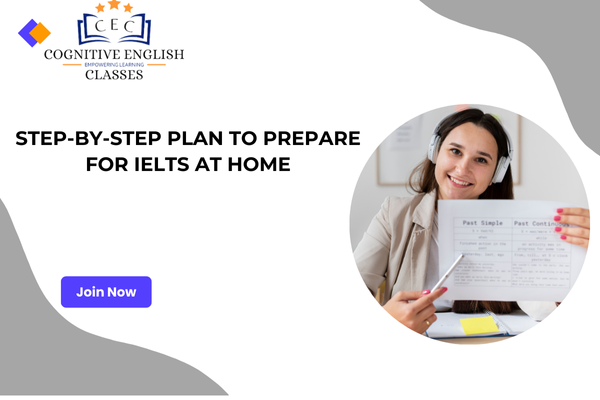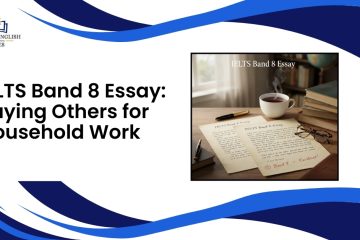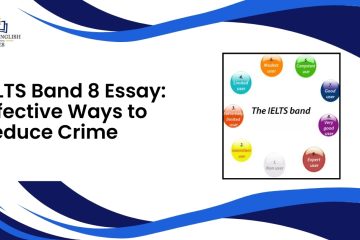The idea of studying for your IELTS at home might appear overwhelming at first. If you’ve developed a sound plan and have an organized and clear mental attitude, you’ll get the marks you’re seeking without the need to go to a classroom. We’ll give you detailed instructions for each step of the IELTS test, no matter where you are.
How to Prepare for IELTS at home?
The option of learning IELTS at home. It offers the flexibility, ease of use, and an opportunity to customize your learning strategy in accordance with your personal preference. It is possible to target weaknesses to boost your score, and you’ll be able to study regularly and save time and money. Self-study requires discipline, as well as an effective plan.
Step 1: Understand the IELTS Exam Format
Before you begin your IELTS at home journey, it’s important to know the exam structure. The test is composed of four parts:
- Listening (30 minutes): Four recorded monologues as well as conversations.
- Read (60 mins): Three long chapters with questions that assess comprehension and interpretability.
- writing (60 hours): Task 1 (graph/chart description) and Task 2 (essay writing).
- Talking (11-14 minutes): A face-to-face interview, with questions about familiar subjects, a lengthy turn, and discussion.
Understanding the format will allow you to design specific practice sessions, avoid surprises, and ease anxiety on the day of your exam.
Step 2: Create a Study Schedule
The importance of consistency is when you are preparing for the test at home. Create a study schedule that balances the four sections of the test. A typical weekly schedule could be like this:
- Monday: Read, practice, and Vocabulary Building
- Tuesday: Practice listening exercises and Note-taking strategies
- Wednesday: Writing Task 1 practice + Grammar review
- Thursday: Speaking practice + Pronunciation drills
- Friday: Assignment 2 for writing + Practice for a timed essay
- Saturday Practice tests on all the sections
- Sunday: Examine mistakes made and look for weak spots
TIP: Aim for a daily study time of three hours, or whatever is realistic to keep you from burning out.
Step 3: Collect the Right Study Materials.
When you study IELTS at home, you must have the right study materials to support your preparation. You should have access to:
- Practice books for IELTS: The Cambridge IELTS Series is highly recommended.
- Online resources: Access free of charge listening and reading exercises from official IELTS websites.
- Vocabulary reference: books or apps that focus on general and academic English terminology.
- Writing references: high-band example essays and task responses to help guide your writing efforts.
- Speaking practice: access a recording app to check fluency and pronunciation.
Using a range of resources, deconstruct the test to understand each section of the reading, writing, and speaking test.
Step 4: Target Each IELTS Section
Listening Tips
- Watch news, podcasts, and lectures to build familiarity.
- Practice IELTS validated listening tests in real test conditions.
- Learn to listen for and identify key words, and practice making brief notes as you’re listening.
Reading Tips
- Use techniques for skimming and scanning to quickly locate information.
- Take notes during tests to increase your reading speed.
- Find unfamiliar words and build a personal dictionary.
Writing Tips
- Task 1: Concentrate on describing trends and contrasts in a clear and precise manner using correct vocabulary.
- Task 2: Work on structuring essays using an organized introduction, body, and conclusion.
- Find feedback on your essays to find the areas of improvement and mistakes.
Speaking Tips
- Record yourself as you answer the most frequently asked questions on IELTS and then review your score.
- Try speaking for two minutes per day on a specific subject to increase fluency.
- Improve your pronunciation, intonation, and avoid using fillers like “um” or “you know.”
Step 5: Take Regular Mock Tests
Tests on the mock are an important element of IELTS at home preparation. They assist you in:
- Simulate the real exam conditions
- Find time management challenges
- Find out strengths and weaknesses.
- Enhance confidence and lessen anxiety during tests.
You should schedule at least one full-length mock test each week until you are nearing the date of your test.
Step 6: Track Your Progress
Recording your progress and scores ensures constant improvement. Keep a log of your progress that includes:
- Section-wise scores of mock tests
- Vocabulary acquired and mistakes rectified
- Recordings of self-evaluation for speaking
- Writing samples, with notes on how to improve
Step 7: Receive Experts for guidance.
Self-study can be a good alternative; however, the guidance of experienced instructors will significantly increase the chances of success. If you’re searching for the Best IELTS Coaching in Faridabad, Cognitive English Classes provide expert guidance and systematic learning with individual feedback. Incorporating professional guidance during your study for IELTS will help you enhance the effectiveness of your strategies. strategies to avoid making the most frequently made mistakes.
Step 8: Stay Motivated and Consistent
Your success on IELTS will depend on your determination. Keep yourself focused by:
- Set clearly defined objectives (for instance, setting a goal to achieve 7 in Band 7 within three months)
- Recognizing yourself for even the smallest accomplishments
- A constant stream of English media to remain absorbed in the English language
- Find a friend, a student who can help another
Step 9: Re-read and improve
In the closing weeks, concentrate on reviewing the entire course and smoothing your weaknesses:
- Rereview grammar rules and vocabulary
- Practice more difficult reading passages
- Meet with your partners every day.
- Review your essays from previous weeks and make improvements to the quality of your essays.
This final step plays an important role in ensuring you are adequately prepared and focused on playing for success at the exam.
Why Choose Cognitive English Classes?
While you are preparing to take the test, combining self-study with structured coaching can give you an advantage. Cognitive English Classes are regarded as the most effective Best IELTS coaching in Faridabad, offering:
- Individualized attention and feedback
- A variety of practice materials for students
- Strategies to increase scores in the band quickly
Even when you study at home, taking advantage of expert guidance will ensure a balanced, efficient method of IELTS preparation.
Conclusion
Making preparations to take the IELTS at home is a reality by following a well-organized, systematic strategy. If you are familiar with the exam format, establishing a realistic schedule and a consistent practice schedule, taking practice tests, and obtaining expert advice through Cognitive English classes, you can successfully aim for the right band. Keep in mind that the process of preparation is a journey. Focus on your consistency and consistency. Smart strategies are the key to success.
How long should I be preparing for the IELTS test at home?
Most students can benefit from a steady period of learning, with a minimum of 2 hours per day, based on their current English ability.
Can I reach a higher band without any coaching?
Self-study is a good option and can result in good scores when structured practice, mock tests, and feedback loops are followed consistently.
What are the most effective sources for IELTS preparation at home?
Cambridge IELTS books, Official IELTS online resources, English podcasts, vocabulary applications, and writing examples would be highly suggested.
When should I sit for mock tests?
You should take at least one full-length test every week, increasing the frequency as the test gets closer to replicate real-world conditions and help you manage your time better.
Does speaking practice matter when doing your homework at home?
Absolutely. Regular speaking practice increases speaking fluency, confidence, and pronunciation, and helps prepare you for the interview section.
Make sure you take your IELTS at home practice to the highest level! Get connected to cognitive English classes through social media for helpful tips, live sessions, and professional guidance to ensure that you achieve your desired score in the band. Start today and get started on your journey!













Add comment